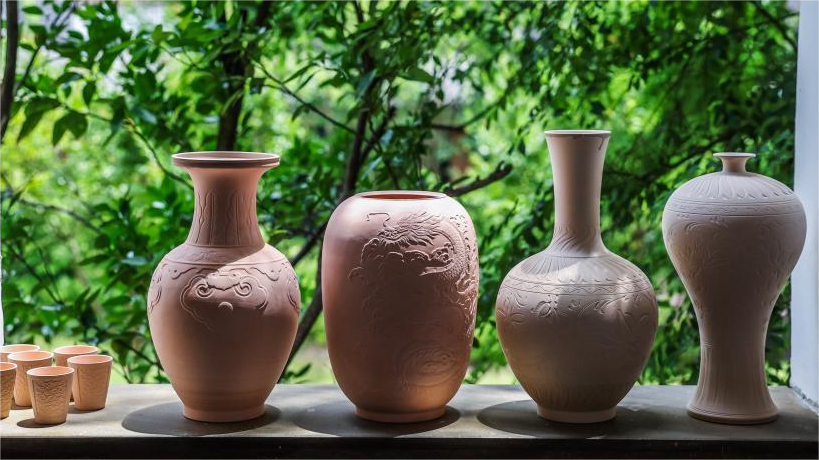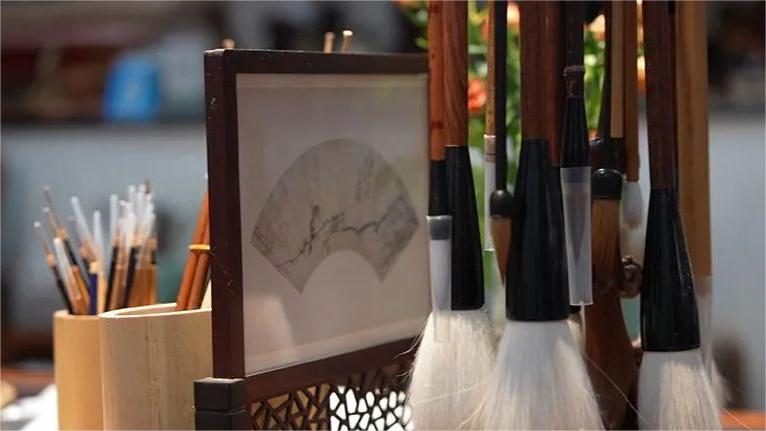AI-powered, multilingual Chinese "boss ladies" expand their global reach

Fu Jiangyan (2nd L, front row), who manages a sock store at Yiwu International Trade Market, attends a Spanish lesson in Yiwu, east China's Zhejiang Province, June 6, 2024. (Xinhua)
HANGZHOU, June 7 (Xinhua) -- Every morning, hundreds of women converge at the sprawling wholesale market in Yiwu, a city in eastern China known as the "world's supermarket." However, these women aren't eager shoppers! They are ambitious boss ladies vying for prime spots at the bustling "English corners."
Such boss ladies have built thriving business empires that have made many of them millionaires or even billionaires. Whether it's socks, umbrellas, toys, or any number of other goods originating from this city, these women refuse to let language barriers hinder their global business aspirations.
One such trailblazer is Fu Jiangyan, 42, who manages a sock store at Yiwu International Trade Market, the world's largest small-commodity wholesale market, located in Zhejiang Province.
For the 40 minutes following their arrival at these English corners, Fu and other female students clutch sheets of paper and practice basic English conversations and terms related to shipment schedules, inventories, packaging details, and payment methods, under the tutelage of a teacher.
In typical family-operated businesses in Yiwu, women manage market stores and negotiate directly with foreign buyers, while their husbands oversee nearby factories. According to Fu, these women are affectionately known as the "boss ladies."
An estimated 3,500 foreign merchants frequent Yiwu International Trade Market on a daily basis.
"Foreign customers prefer doing business with someone who speaks their language rather than relying on impersonal translators," Fu said. "You might gain not only orders but also friends, a broader perspective, and many other pleasant surprises."
Organized by Zhejiang China Commodities City Group, the English corners have imparted linguistic skills to 500,000 vendors over the past 17 years, according to Zhang Li, deputy general manager of the company's human resources center.
"Learning English has become a widespread trend," Zhang said.
MORE THAN ENGLISH
For boss ladies like Fu, mastering foreign languages is more than a trend -- it's a crucial business strategy. Each year, Fu and her husband sell 20 million pairs of socks, mainly exported to South America, the Middle East, and South Africa, with the latter accounting for a staggering 70 percent of their sales.
As her business expanded to more continents, she realized that mastering English was not enough. She embarked on learning Spanish, Korean, and Arabic, devoting her evenings after the store closed to these linguistic pursuits.
Starting with online self-study, she has since attended a Spanish corner, which has imparted linguistic skills to over 2,000 people during the past three years.
To meet the demands of international trade, language training companies in Yiwu also offer courses in languages such as Arabic and Portuguese for merchants and foreign trade companies, said Jin Zhengping, head of a local language training firm.
Fu's store is among 75,000 booths in Yiwu International Trade Market, which offers nearly 2.1 million varieties of goods shipped to almost every corner of the globe.
Yiwu has transformed from an impoverished city decades ago to the "world's supermarket," a symbol of China's economic vibrancy and resilience. Its commodities are indispensable in global industrial, supply, and trade chains.
Around two-thirds of the world's Christmas decorations are made in Yiwu. In addition, when enjoying soccer games, attending concerts, or shopping for clothes, chances are that the football socks, light sticks, or shirt buttons you encounter, come from one of Yiwu's many booths.
After surpassing the 500 billion yuan (about 70.32 billion U.S. dollars) milestone in foreign trade value for the first time in 2023, Yiwu's import and export value has continued to show strong growth this year. From January to April, it reached 201.06 billion yuan, up 22 percent compared with the same period of 2023, with export value totaling 176.38 billion yuan.
Africa, Latin America, and ASEAN countries are among Yiwu's major trading partners, experiencing increases of 19 percent, 34.9 percent, and 38.7 percent, respectively, in terms of trade value in the first four months of this year. Additionally, Yiwu's foreign trade with India and Saudi Arabia has also seen significant growth.
NEW TOOLS, NEW HORIZONS
"In the past, we often relied on translators, calculators and even body language to broker deals with foreign buyers," said Fu Miaoling, another Yiwu businesswoman specializing in bamboo products.
"Although learning foreign languages can help maintain and expand our customer base, it's nearly impossible to master every language when our products reach over 100 countries," she added. "We need new tools."
Now, Yiwu's boss ladies are eyeing artificial intelligence (AI) as the city capitalizes on the momentum of China's booming digital economy.
Fu Jiangyan, for instance, began using an innovative app to enhance her product videos. After recording in Chinese, the app transforms her speech into 36 languages, including English, French, Spanish, and Arabic, while even syncing her lip movements.
In Yiwu, over 10,000 vendors now use this AI app, which was launched late last year.
Leveraging such AI technology, Fu and seven other women graced the iconic screens of Times Square in New York last month, showcasing their businesses to a global audience.
Fu has also honed additional skills like short video editing. On one occasion, a video she posted on social media, lasting less than a minute, quickly captured the attention of an Albanian customer. The very next day, the customer ordered 12,000 pairs of her Christmas socks.
"The Yiwu businesswomen of today are not like their predecessors," said Svenja Neumann, a German trader with years of experience in Yiwu. "They now use various digital tools to acquire customers, make offers and manage orders."
Yiwu is currently home to over 15,000 foreign merchants.
"The city is very friendly to them. Many have married Chinese nationals, purchased houses in Yiwu, and made it their home," Fu said.
Fu's 17-year-old son is a confident speaker of English. She harbors aspirations for him to pursue higher education, either in China or overseas.
"We hope he will join the family business someday," Fu said. "If he chooses to study international trade or e-commerce, that would be even better. He could help take our business to new heights."

This photo taken on Feb. 21, 2024 shows a multilingual product introduction video using AI technology at Yiwu International Trade Market in Yiwu, east China's Zhejiang Province. (Xinhua/Jiang Han)
Photos
Related Stories
- Olympic fever sparks revenue surge in Zhejiang ahead of Paris Games
- Yiwu buzzing with production orders as Paris 2024 Olympic Games approach
- Yiwu sees rise in orders as Paris Olympics draws near
- Sports goods exports from Yiwu to France surge 70 percent ahead of Paris Olympics
- China’s Yiwu sees rising demand for sporting goods as Paris 2024 draws near
Copyright © 2024 People's Daily Online. All Rights Reserved.









